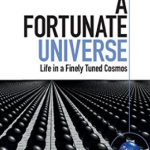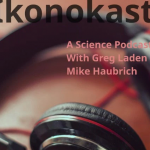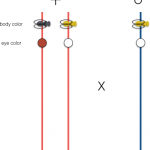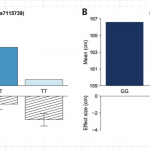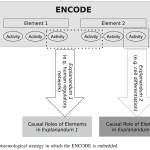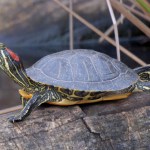genetics
A Fortunate Universe: Life in a Finely Tuned Cosmos
This is a concept that has always fascinated me, ever since reading some stuff about the Periodic Table of Elements. Check it out:
Over the last forty years, scientists have uncovered evidence that if the Universe had been forged with even slightly different properties, life as we know it - and life as we can imagine it - would be impossible. Join us on a journey through how we understand the Universe, from its most basic particles and forces, to planets, stars and galaxies, and back through cosmic history to the birth of the cosmos.…
Tennessee Walking Horse photo by Just chaos. https://commons.wikimedia.org/w/index.php?curid=7128467
In a new study published in Physiological Genomics, researchers explored the role of genetics in the conformation of Tennessee Walking Horses. In other words, how close each animal they sampled looked to an "ideal" Tennessee Walking Horse. According to Kylee Jo Duberstein (Department of Animal and Dairy Science, University of Georgia), there are five criteria that are examined when evaluating the conformation of a horse. These include "balance, structural correctness,…
There is a food crisis sneaking up on us right now. A lot of them, actually. A lot of little one, some big ones. There are always places in the world where food has become scarce for at time, and people starve or move. You've heard of the ""Syrian refugee crisis," and the often extreme reactions to it in Europe and among some in the US. That started out as a food crisis, brought on by human pollution induced global warming in an already arid agricultural zone.
Nearly similar levels of climate change related pressure on agricultural systems elsewhere has led to very different outcomes,…
A few of the recent pieces I've liked:
Maryn’s McKenna at Germination: Zika Virus: A New Threat and a New Kind of Pandemic
Kevin Drum in Mother Jones: My Right to Die: Assisted suicide, my family, and me
Jodi Jacobson at RH Reality Check: Four Facts Nancy Pelosi—and All ‘Pro-Choice’ Democrats—Should Know About Abortion
Sarah Brown in The Chronicle of Higher Education: Many Black Students Don’t Seek Help for Mental-Health Concerns, Survey Finds
David Epstein at ProPublica: The DIY Scientist, the Olympian, and the Mutated Gene
I've been informed that I've been at war for a while. I was surprised. Apparently, Perry Marshall thinks he's been firing salvo after salvo at me…I just hadn't noticed.
https://twitter.com/cfingerprints/status/685936085998829568
Oh, OK. I would just ignore him, but he's presenting some fascinatingly common misconceptions. One of his boogeymen is chance, and I've noticed that a lot of people hate the idea of chance. Uncle Fred got hit by lightning? He must have done something very bad. It can't just have been an accident. There are no accidents!
Yes, Virginia, there are accidents, chance…
This could get interesting. I've seen a lot of stories about this recent paper on the tardigrade genome:
Horizontal gene transfer (HGT), or the transfer of genes between species, has been recognized recently as more pervasive than previously suspected. Here, we report evidence for an unprecedented degree of HGT into an animal genome, based on a draft genome of a tardigrade, Hypsibius dujardini. Tardigrades are microscopic eight-legged animals that are famous for their ability to survive extreme conditions. Genome sequencing, direct confirmation of physical linkage, and phylogenetic analysis…
There is a new paper in Science linking genetic variation in people living in Greenland with long term selection for managing a marine-oriented diet, affecting stature, weight, and probably, physiological processing of omega-3 polyunsaturated fatty acids (PUFAs).
The vast majority of the variation we seen in stature (height) among humans is not genetic. That is a fact hard to swallow by so many of us who were told in biology class that "height is a complex genetic trait with many genes affecting it." It also seems wrong because the classic examples of variation in stature, the Pygmies of…
a, Schematic of Octopus bimaculoides anatomy, highlighting the tissues sampled for transcriptome analysis: viscera (heart, kidney and hepatopancreas), yellow; gonads (ova or testes), peach; retina, orange; optic lobe (OL), maroon; supraesophageal brain (Supra), bright pink; subesophageal brain (Sub), light pink; posterior salivary gland (PSG), purple; axial nerve cord (ANC), red; suckers, grey; skin, mottled brown; stage 15 (St15) embryo, aquamarine. Skin sampled for transcriptome analysis included the eyespot, shown in light blue. b, C2H2 and protocadherin domain-containing gene families…
Scotland is going to formally ban the cultivation of genetically modified crops. Apparently, this was an easy step for them to take, because it's the scientists who are explaining that this is a foolish move, and everyone knows you can just ignore the scientists.
I also think it's a matter of fearing the unknown. Scotland doesn't have any GM crops! It's easy to ban what you already don't have, and when activists have successfully nailed the phrase "genetically modified" with the stigma of being sciencey and wicked. It's absurd.
If you're going to ban everything that has been genetically…
Dan Graur has snarled at the authors of a paper defending ENCODE. How could I then resist? I read the offending paper, and I have to say something that will weaken my own reputation as a snarling attack dog myself: it does make a few good points. But it's mostly using some valid criticisms to defend an indefensible position.
Here's the abstract.
In its last round of publications in September 2012, the Encyclopedia Of DNA Elements (ENCODE) assigned a biochemical function to most of the human genome, which was taken up by the media as meaning the end of ‘Junk DNA’. This provoked a heated…
I happen to be in Houston right now attending the Society of Surgical Oncology annual meeting. Sadly, I'm only about 12 miles away from the lair of everybody's favorite faux clinical researcher and purveyor of a cancer cure that isn't, Stanislaw Burzynski. Such is life. In any case, this conference is all about cancer and how we treat it surgically. That includes prophylactic surgery designed to prevent cancer in people at very high risk. Prophylactic surgery to prevent cancer is never a decision that should be undertaken lightly and almost never is, rants from quacks notwithstanding that…
Hint for science journalists: if the hook to get readers to pay attention to your story is to warn them to sit down because a 19th century "law" of evolution has been shown to be wrong, you're going to irritate scientists, who will then write rude blog posts sneering at your writing. That's the case with this story titled The Wrists of Birds Reveal Evolution Undoing Itself, which is also subtitled Contrary to earlier claims, a new study shows that evolution may be reversible.
It's describing a paper on the re-emergence of a wrist bone in birds, and it touts Dollo's Law.
The 19th-century…
Dan Graur has written a good summary of genetic load. It's an important concept in population genetics, and everyone should be familiar with it…and this is a nice 2½ page summary with only a little math in it.
I'll try to summarize the summary in two paragraphs and even less math … but you should read the whole thing.
Genetic load is the cost of natural selection. You all understand natural selection (my usual problem is trying to explain that there's more to evolution than just selection), and so you know that you can't have selection without imposing a loss of fitness on individuals that…
That paper that proposed that most cancers were due to bad luck, that is, that they were a consequence of biological factors that could not be controlled, has been surprisingly controversial. I thought it was a fairly unsurprising paper that confirmed what we already suspected, but wow, the furious pushback has been something to behold.
Today, though, a couple of MDs have responded to the paper and reinforce what I said.
Steven Novella thinks the general logic is sound.
This is an interesting study and it will be interesting to look at replications and other methods, if they are available, of…
Since we still have someone arguing poorly for the virtues of the ENCODE project, I thought it might be worthwhile to go straight to the source and and cite an ENCODE project paper, Defining functional DNA elements in the human genome. It is a bizarre thing that actually makes the case for rejecting the idea of high degrees of functionality, which is a good approach, since it demonstrates that they've at least seen the arguments against them. But then it sails blithely past those objections to basically declare that we should just ignore the evolutionary evidence.
Here's the paragraph where…
Some interesting new research. The paper is, unfortunately, behind a paywall but they made a video, so it is worth posting.
Here's the press release for the paper:
Scientists know that temperature determines sex in certain reptiles—alligators, lizards, turtles, and possibly dinosaurs. In many turtles, warm temperatures during incubation create females. Cold temperatures, males. But no one understands why.
A recent study sheds further light on this question. The findings of researchers Kayla Bieser, assistant professor at Northland College, and Thane Wibbels, professor of reproductive biology…
But you knew that already.
The Coffea canephora Genome has been sequenced. This is probably more important than the Human Genome project because humans are completely useless first thing in the morning, but coffee is very important first thing in the morning.
Some important plant evolution involves wholesale duplication of large parts of the genome. This does not appear to be the case with coffee. Rather, diversification of single genes characterizes the genome, so, according to the paper reporting these results in Science, "...the genome includes several species-specific gene family…
The New Yorker has a fascinating article on Vandana Shiva, a crusader against GMO crops. I'd never heard of her before, but apparently she has charisma and cult-like followers who hang on her every word, and her word is a rather religious opposition to scientific agriculture. Weirdly, I can agree with some of it.
At each stop, Shiva delivered a message that she has honed for nearly three decades: by engineering, patenting, and transforming seeds into costly packets of intellectual property, multinational corporations such as Monsanto, with considerable assistance from the World Bank, the…
Kim Goodsell was not a scientist, but she wanted to understand the baffling constellation of disease symptoms that were affecting her. The doctors delivered partial diagnoses, that accounted for some of her problems, but not all. So she plunged into the scientific literature herself. The point of the linked article is that there is a wealth of genetic information out there, and that we might someday get to the point of tapping into the contributions of citizen scientists. But I thought this was the most interesting part:
She started by diving into PubMed—an online search engine for…
A list of reviews of Nicholas Wade’s book “A Troublesome Inheritance,” mainly by anthropologists and others who have investigated issues surrounding the concept of “race” in humans.
Bethune, Brian: Inheritance battles
Daniels, Anthony: Genetic disorder
Dobbs, David: The Fault in Our DNA
Fuentes, Augustín: The Troublesome Ignorance of Nicholas Wade
Geneticists, Lotsofthem: An Open Letter
Goodman, Alan: A Troublesome Racial Smog
Johnson, Eric Michael: On the Origin of White Power
Laden, Greg: A Troubling Tome
Marks, Jonathan: The Genes Made Us Do It
Marks, Jonathan: Review of A Troublesome…
